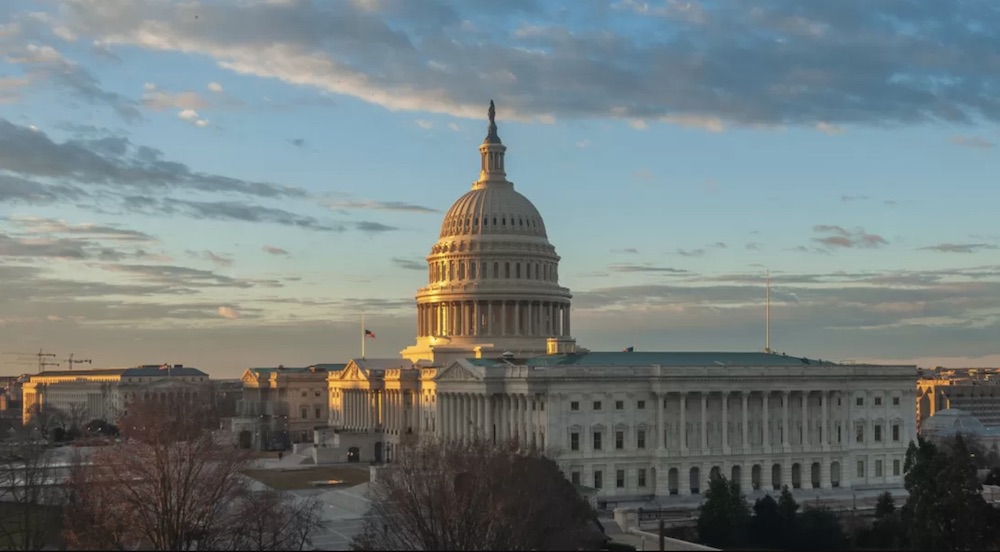
- Details
- By Tribal Business News Staff
- Sovereignty
WASHINGTON, D.C. – Two pieces of bipartisan legislation have been introduced in the U.S. House of Representatives to federally recognize the Patawomeck Indian Tribe of Virginia and the Grand River Bands of Ottawa Indians in Michigan.
The Patawomeck Indian Tribe of Virginia Federal Recognition Act, sponsored by U.S. Representatives Abigail Spanberger (D-VA-07), Jen Kiggans (R-VA-02), and Jennifer Wexton (D-VA-10), would grant federal recognition to the Patawomeck Indian Tribe of Virginia, making them eligible for services and benefits provided to federally recognized tribes. The bill currently has 22 cosponsors.
“In Congress, I represent nearly 2,000 members of the Patawomeck Tribe, and their long history, their rich traditions, and their centuries of contributions to Virginia deserve respect and recognition. However, a lack of recognition by the federal government has left the tribe unable to access new resources for economic development, healthcare, and education in our communities,” Spanberger said in a statement.
The Grand River Bands of Ottawa Indians Restoration Act of 2023, sponsored by U.S. Representatives Hillary Scholten (D-MI-03) and John Moolenaar (R-MI-04), would reaffirm and clarify the status of the Grand River Bands of Ottawa Indians as a federally recognized tribe. The bill currently has 18 cosponsors.
“On behalf of the Grand River Bands, I thank the Michigan congressional delegation members who co-sponsored this bill that will help us finally achieve our long-stated goal of federal recognition after three decades of administrative delays by the broken federal acknowledgment process,” Ron Yob, chairman of the Grand River Bands said in a statement.
Both tribes have been working for decades to achieve federal recognition, which would make them eligible for a variety of federal programs and services, including funding for education, healthcare, and economic development.
Tribes can gain federal recognition in three ways: through the Bureau of Indian Affairs' Office of Federal Acknowledgement (OFA), through federal legislation, or through a federal court ruling. Most tribes choose to go through the BIA process, but it can be bureaucratic and time-consuming.
There are currently eight active petitions in process through the OFA, including the Grand River Band petition.
There is also active legislation in Congress involving the largest Indian tribe east of the Mississippi, the Lumbee Tribe of North Carolina, which has been waiting decades for full federal recognition. This recognition would make Lumbee tribal members eligible for the same services and benefits provided to members of other federally recognized tribes, including funding for education, healthcare, and economic development.
In 1956, Congress passed legislation recognizing the Lumbee Tribe as an Indian tribe, but the bill denied the Lumbees any federal services and benefits associated with such recognition. Since then, the tribe has continued to push for a full and complete federal recognition, but legislation supporting federal benefits to the Lumbees has repeatedly died in committee.
In February 2023, U.S. Senators Thom Tillis (R-NC) and Ted Budd (R-NC) introduced the Lumbee Fairness Act legislation to grant long-overdue federal benefits to the Lumbees. The bill has also been introduced in the U.S. House of Representatives by North Carolina Representatives David Rouzer (R-NC), Dan Bishop (R-NC), Richard Hudson (R-NC), Greg Murphy, M.D. (R-NC), Kathy Manning (D-NC), Deborah Ross (D-NC), and Don Davis (D-NC).
The Lumbee Fairness Act has broad bipartisan support, but it is still unclear when or if it will be passed into law. Lumbee leaders say that they are optimistic about the bill's chances of passage, but they are also aware of the challenges that lie ahead.
"I think eventually we'll get there," N.C. Rep. Jarrod Lowery, a member of the Lumbee Tribe, told a local media outlet, The Robesonian.
